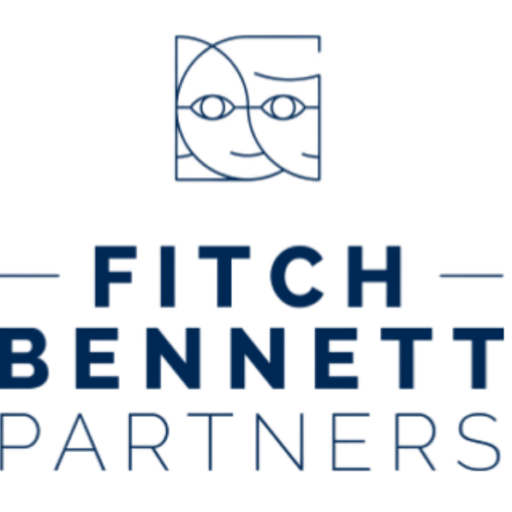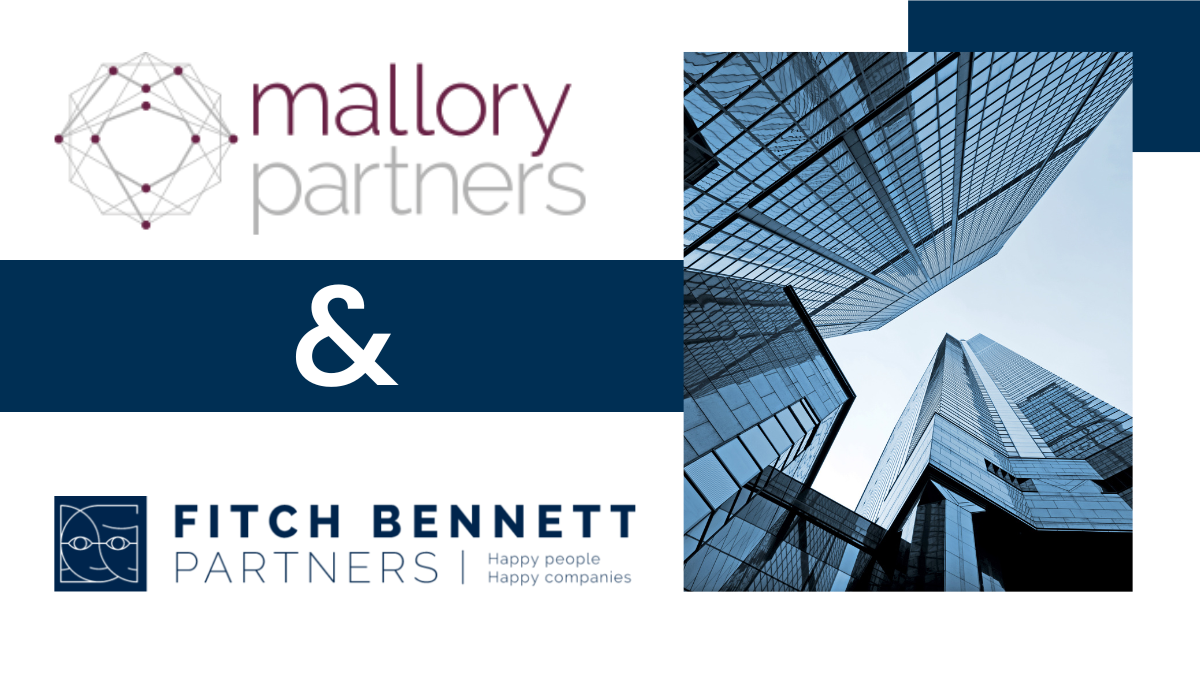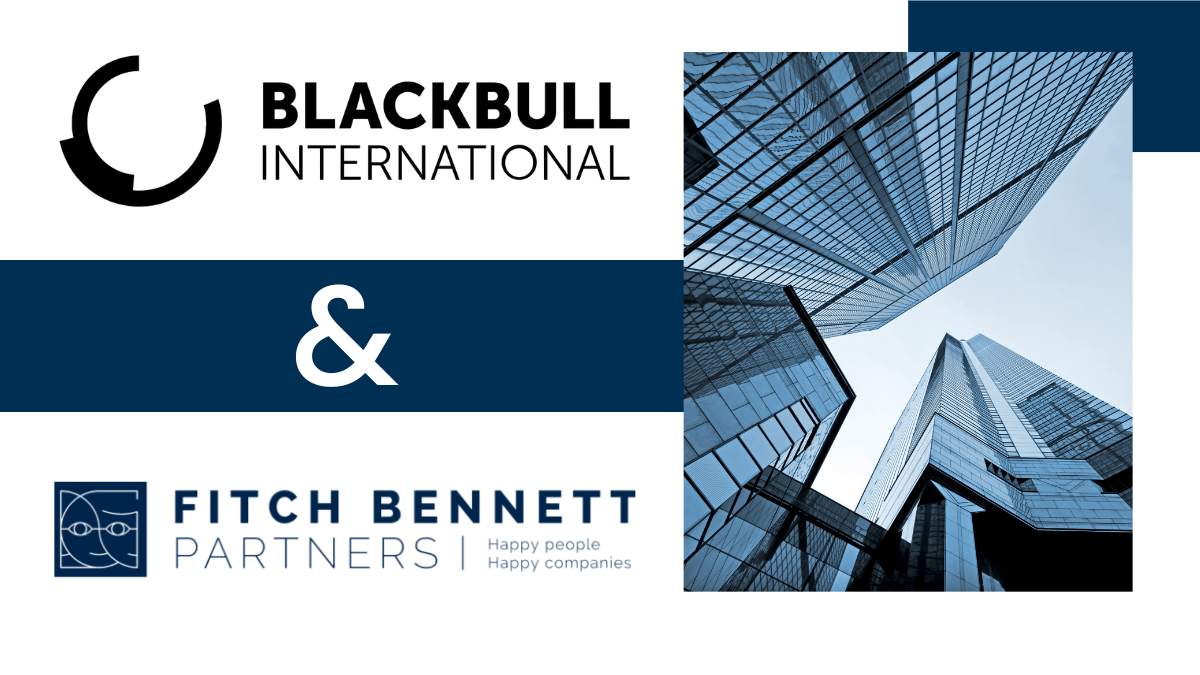In today’s dynamic business world, companies are often facing unforeseen challenges that require additional expertise to overcome successfully. That’s where transition managers usually come in. These experienced professionals meet a need for responsiveness and flexibility. As management experts, they are ready to take on temporary challenges and guide your company to new heights. On one condition: you have o find the right person. Meeting specific challenges, driving change or filling vacant management positions… Transition managers can be used in a variety of situations. In all cases, they allow you to benefit from the expertise of experienced managers over a limited period of time. However, as the market evolves, the number of transition managers is growing strongly. The profiles are varied and increasingly specialized. In this infinite ocean, it’s legitimate to ask: how do you spot the ideal professional? Aymeric Bouffard, transition management expert at Fitch Bennett Partners, offers you his advice. Step 1: Write a mission statement before you start the selection process Before you begin your selection process, it’s important to clarify and write down in black and white the company’s needs in their entirety: from the context, through the issues at stake, to the objectives. This is exactly the role of the engagement letter. This document describes the nature and conditions of the assignment. It is useful when several internal people are working on the project, because it ensures that the main objective is not lost sight of. It can also seal the alliance between the company and the transition manager. In this case, it will act as a point of support between the two parties. Note: There is no legal obligation, either in the Labour Code or in the law, forcing a client to draw up an engagement letter. However, it is recommended as a bulwark against any friction or misunderstanding that may arise. A preventive measure that ensures a harmonious and profitable relationship for all parties concerned. A number of questions will help formalise this engagement letter: The transition manager Expected assignments The resources you make available to the transition manager You may also be interested in this article: Welcoming the transition manager : a step to be taken with care Allocated budget Step 2: Selecting the transition manager Choosing an transition manager is somewhat similar to selecting a candidate for a permanent contract. Confidentiality (signing a non-disclosure agreement), an in-depth interview to validate skills and achievements, discernment of personality and the taking of references are not to be overlooked once again at this stage. But while there are points in common between the selection of a candidate on a permanent contract and an transition manager, there are also important differences that need to be taken into account for a successful selection. We wanted to explain the differences point by point so that you can take them into account when making your selection. The major differences are : Time: In transition management, candidates must be available immediately, which implies a very specific mindset and posture. Experience: The transition manager must be capable, in a short space of time, of carrying out a diagnosis and proposing a plan of action which, if approved, will be implemented. This implies a high level of experience adapted to the context and challenges of the assignment. The transition manager will be deliberately “oversized” to enable him to have the expected impact within a given timeframe. The selection process: Bearing in mind that there is often a sense of urgency, that the assignment has a fixed duration and that the manager selected is “oversized”, it is advisable to opt for a short selection process, with two or three interviews. Frequently, transition managers are asked to take on assignments which, in the end, do not come to fruition. For example, assignments that are cancelled, a solution found internally, a budget problem, another candidate selected, etc. Given this level of uncertainty, when the transition manager has a choice between several assignments – which is often the case – he will tend to favour the client who first confirms his interest. It is for this reason that it is highly advisable to have an appropriate selection process to optimise the chances of retaining the transition manager you wish to work with.
PRESS RELEASE – Fitch Bennett Partners announces its partnership with Mallory Partners
Fitch Bennett Partners is pleased to announce its partnership in the United Kingdom with Mallory Partners, represented by its two founders Jeremy Purkis and Martin Luise. Mallory Partners is a specialized executive search firm that collaborates with private equity investors, private equity-backed businesses, and entrepreneurial candidates to assemble performance-driven management teams that generate substantial value for their investors. The firm’s clients include some of the most esteemed firms in the industry, including the UK’s three most active investors in terms of transaction volume and value. Mallory Partners’ track record of success has been established through the implementation of a rigorous and highly customized recruitment approach. Through this extensive experience, the firm has developed a keen eye for identifying the leadership talent required to thrive in this dynamic and challenging environment. [/vc_column_text][/vc_column][/vc_row][vc_row][vc_column width=”1/4″][thb_image image=”15838″][/thb_image][/vc_column][vc_column width=”3/4″][vc_column_text] An executive recruiter with more than 20 years’ experience of delivering board-level assignments across a number of sectors and a range of disciplines. Most recently, heavily involved in the Business & Support Services markets, working with select corporate clients (at middle management – director level) and Private Equity backed businesses (CEO, CFO/FD, Ops/Sales Director and Non-Exec). Jeremy has recruited Executive C-level candidates, Chairs and NEDs for businesses backed by Sovereign Capital, LDC, 3i, Horizon, August Equity, Chiltern Capital, Vitruvian, Inflexion, Beech Tree and LDC amongst others. Specialties: Executive search and selection assignments, senior recruitment. Mail : jpurkis@fitchbennettpartners.com Tel : +44 07970 687 974 [/vc_column_text][/vc_column][/vc_row][vc_row][vc_column width=”1/4″][vc_separator][thb_image image=”15839″][/thb_image][/vc_column][vc_column width=”3/4″][vc_column_text] An Executive recruiter with over 25 years’ experience of delivering board level assignments across a range of sectors and disciplines. Have worked for large scale corporates and significant experience of start-up’s having built Executive Search businesses for owner managed businesses and quoted enterprises. Martin has experience encompassing permanent and interim assignments. Mail : mluise@fitchbennettpartners.com Tel : +44 07949 144 162 [/vc_column_text][/vc_column][/vc_row][vc_row][vc_column][vc_column_text] Our Partners around the World: Thanks to its know-how in France, Fitch Bennett Partners, an international executive firm, can address your recruitment challenges abroad by leveraging its network of renowned local Partners covering the key economic regions: North and South America, Europe, and China. More information: +33(0)1 84 79 02 44 / societes@fitchbennettpartners.com
PRESS RELEASE – Fitch Bennett Partners announces its partnership with Blackbull International
Fitch Bennett Partners is pleased to announce its partnership in Germany with Blackbull International, represented by its two founders Sven Herget et Fatih Ayar. Founded in 2014, Blackbull International is a leading executive search firm with a specialized focus on the Industry and Financial Services sectors. Blackbull both Interim Management and Permanent placement solutions. Their approach goes beyond the traditional qualifications, aiming to find candidates who drive innovation and change. Our partners leverage their extensive network and industry expertise to ensure “we place the best minds in the right place.” [/vc_column_text][/vc_column][/vc_row][vc_row][vc_column width=”1/4″][thb_image image=”15798″][/thb_image][/vc_column][vc_column width=”3/4″][vc_column_text] Sven Herget, Co-Founder and Managing Partner of Blackbull International, is a seasoned professional in the executive search domain, with over a decade of experience under his belt. Sven’s expertise lies in serving the Industrial, Automotive, and Consumer and Retail sectors, providing stellar candidates for CFO, CHRO positions, and their direct reports. Following his academic pursuits in philosophy and political science, Sven swiftly established himself in the national and international recruitment consulting arena. His strategic vision led him to found Blackbull International in 2014, driven by a desire to create powerful synergies between the right individuals and the right organizations. Mail : Sherget@fitchbennettpartners.com Tel : +49 171 101 2001 [/vc_column_text][/vc_column][/vc_row][vc_row][vc_column width=”1/4″][vc_separator][thb_image image=”15797″][/thb_image][/vc_column][vc_column width=”3/4″][vc_column_text] Fatih Ayar, Co-Founder and Managing Partner of Blackbull International, expertly oversees all key business units, specializing in both permanent and interim executive positions. His core focus is on serving the banking and financial service sectors, leveraging his extensive European network across Risk, Finance, Treasury, Compliance, HR, and Marketing. Since embarking on his recruitment consulting journey in 2011, Fatih has been passionate about connecting the right individuals with the right companies. As an integral part of Blackbull International, he has been pivotal in enhancing the company’s senior advisor network, ensuring the continued delivery of excellent results for clients and candidates. Mail : Fayar@fitchbennettpartners.com Tel : +49 171 11 22 382 [/vc_column_text][/vc_column][/vc_row][vc_row][vc_column][vc_column_text] Our Partners around the World: Thanks to its know-how in France, Fitch Bennett Partners, an international executive firm, can address your recruitment challenges abroad by leveraging its network of renowned local Partners covering the key economic regions: North and South America, Europe, and China. More information: +33(0)1 84 79 02 44 / societes@fitchbennettpartners.com
Welcoming the transition manager: a step to be taken with care
Companies are increasingly turning themselves to transition managers. The transition manager comes in temporarily to support a company, mainly because of an incoming transformation. Much more than a simple formality, welcoming a transition manager is a step that should not be overlooked. Fitch Bennett Partners gives you 5 tips to ensure that this professional gets off to a good start. As soon as they arrive, transition managers face a major challenge: getting to grips with their assignment so that they can get up and running as quickly as possible. For its part, the company has little time to organise itself between the selection of the transition manager and the start date. This short period is decisive in enabling the transition manager to start the assignment in good conditions. So how do you get the onboarding right? Aymeric Bouffard, transition management expert at Fitch Bennett Partners, offers you his advice… Preparing for your arrival The key to a good reception is careful preparation. Before the transition manager arrives, make sure you provide him with all the information he needs to get off to a good start, as well as a pleasant workspace. A combination of content and comfort will ensure a solid and pleasant start from day one.The necessary information includes a full briefing on the company, how it works, its challenges and its objectives. Understanding the context in which they are working will enable them to get down to work quickly. Keep your staff informed Transparent communication is an essential part of welcoming the transition manager. Inform existing employees about the manager’s specific role, his temporary mandate and the reasons for his presence. This will allay any fears about change and encourage smooth collaboration. For example, it is important to reassure employees that the arrival of a transition manager is not intended to replace them but to support and work with them. Provide access to key tools and information Nothing hampers an transition manager’s productivity more than a lack of access to the necessary tools and resources. Make sure that all financial data, management tools, activity reports and performance reports are accessible from day one. A smooth transition is the key to a fast and efficient start. Organise your first week Communication is the key to good collaboration between the team and the transition manager. That’s why it’s important to plan meetings with the people who are important to the smooth running of the assignment when they arrive. This immersion makes it easier for the transition manager to settle in and quickly grasp the operational challenges. Regular follow-up Welcoming the transition manager is not just about the first week. Maintaining a regular follow-up to assess progress, resolve any problems and adjust priorities is necessary. Ongoing communication guarantees a fruitful collaboration and agile adaptation to the company’s changing needs. By following these few tips, you’ll be able to give your transition manager the best possible welcome and enable him or her to carry out the assignment in the best possible conditions.
Ai and recruitment : How Artificial Intelligence is redefining the recruitment and human resources world
The spectacular rise of artificial intelligence (AI) has spawned revolutionary technological advances in many fields… including human resources, which is at the heart of a profound transformation. AI is gradually reshaping the way HR recruits, and how leaders manage and develop talent. This innovation is having a major impact on the way companies operate. Thanks to the capabilities of AI, traditional recruitment processes are rapidly evolving. According to APEC (Association Pour l’Emploi des Cadres), “80% of recruiters’ time would be spent on sourcing, while only 10% would be spent on interviews and 10% on administrative tasks”. Today, machine learning algorithms can analyze vast quantities of data to identify the skills and qualities sought in candidates. Their use would save precious time in screening applications and reduce the human bias inherent in traditional recruitment methods. AI-powered candidate tracking systems have become indispensable tools for recruitment agencies. They make it easier to manage and organize applications, automate administrative tasks, and complement each other in identifying the best profiles matching specific company requirements. Recruiters can thus focus on analyzing human and interpersonal skills, which are essential for assessing a candidate’s suitability. Evolving human resources with AI AI isn’t just for recruitment, it also offers exciting opportunities for HR development. AI-powered chatbots can provide instant answers to employee queries, reducing the time and resources needed to resolve common problems. What’s more, AI can be used to assess employee performance and skills, enabling personalized feedback and the design of individualized development plans. AI-based predictive analytics can also help HR professionals anticipate future recruitment, training and skills development needs. By identifying trends and patterns in existing data, companies can make more informed workforce planning and talent development decisions. Challenges for AI and recruitment While AI offers undeniable advantages, it is not without its limitations. The issue of ethics is paramount when it comes to ensuring that AI is used fairly and non-discriminatorily in the recruitment process. It is essential to ensure that algorithms are trained on unbiased data, and that existing biases in historical data are identified and corrected. The Conversation article does an excellent job of explaining the challenges ahead, as AI in recruitment clearly has room for improvement. The article’s two authors sum it up in this quote: “Explainable AI (editor’s note: they explain how an unexplainable algorithm is an unacceptable algorithm) should obey three principles: transparency of the data used to build the model; interpretability, the ability to produce results that a user can understand; and explainability, the ability to understand the mechanisms that led to that result with the potential biases they entail.” AI is still a long way from meeting these three principles. What’s more, it cannot completely replace the human aspect of recruitment and human resources. Indeed, they raise the question of human feeling, interpersonal skills, intuition and understanding of human dynamics. Like ChatGPT, AI is undoubtedly a very practical tool, but one that complements an expert eye to improve the efficiency and objectivity of the process… but not to replace it entirely.
Careers of the future 2030: focus on the jobs of tomorrow and how to recruit them
The acceleration of technological and process innovations is driving the labor market forward, and we are witnessing the emergence of new jobs. The world of work, in which different sectors and industries are constantly innovating and reinventing themselves, is forcing companies to recruit candidates with highly specific skills and expertise. But what will these new professions look like by 2030? Fitch Bennett Partners explains. While supply usually creates demand, in 2023, demand will create supply. Today’s professions have become so specialized that it’s not enough to simply train someone in them. In fact, we sometimes need real specialists in the sector. Hence the importance of using executive search firms such as Fitch Bennett Partners, which specialize in recruiting experts. Let’s take the example of a drone pilot, whose job is so specific that recruitment is rare. Perhaps the perfect person for your company won’t be a drone pilot who’s graduated from a drone school, but a content creator who’s been perfecting his skills with the tool for years. A questioning of these very specific new professions, which is spreading to many sectors. The amazing thing about 2023 is that you never know how a job is going to change! At the same time, trends are emerging in very specific sectors. Fitch Bennett gives you an overview of these innovative professions, which require market knowledge to find the pearl when recruiting. Big Data and the development of artificial intelligence undeniably offer the jobs of the future As they shape the future, Big Data and artificial intelligence naturally demand more skilled talent. More and more companies are looking to harness their power to improve their products and services, as well as their decision-making processes. This has created a strong demand for experts in the field. But the offer doesn’t always follow. Indeed, the increased demand for expert profiles in Data and AI has led to a shortage of qualified talent in the field. Universities and training programs cannot train enough professionals to meet this demand, and existing specialists are often in high demand, making it difficult to find experts available for projects. Focus on the AI expert CDO (Chief Data Officer) – a career of the future This professional is in charge of driving process automation and designing, developing and improving intelligent systems capable of simulating human learning and intelligence. The AI expert CDO brings his or her knowledge of fields such as computer vision, natural language processing, machine learning and neural networks – in other words, highly specific technical tools and methods – to bear in creating complex algorithms to solve problems. With the rapid rise of AI in almost every sector of industry, it plays a crucial role in technological innovation and the development of automated solutions. The growing demand for these specialized skills makes it a profession of the future, offering numerous career opportunities and career paths in a world increasingly focused on artificial intelligence and advanced technologies. Focus on the Data Scientist – a career of the future in Big Data Tasked with extracting actionable knowledge from vast data sets, the Data Scientist uses advanced analysis and modeling techniques. They possess in-depth skills in statistics, programming and data visualization, enabling them to understand trends, detect patterns and make informed decisions based on concrete data. Data is becoming increasingly abundant, and at the same time, organizations are seeking to harness its full potential and use the information to make strategic decisions. This is why Data Scientists are called upon to work in fields as diverse as healthcare, finance, banking & insurance, new technologies and many others. Aeronautics: a cutting-edge sector requiring niche talent The aeronautics sector requires advanced technical skills in a wide range of fields, including engineering, mechanics, aerodynamics and avionics. These skills are difficult to find and develop. What’s more, these professions are subject to strict safety and quality regulations. Qualified and experienced professionals are needed to meet these standards! Focus on the drone pilot – a career of the future A concrete example of the growing importance of the drone pilot profession is its use in precision agriculture. They can fly over agricultural fields and collect different types of data such as crop health, plant growth, irrigation, disease and many other parameters. This information is then processed and analyzed to provide advice to farmers, enabling them to optimize their farming practices, reduce costs and increase yields. In addition, drones can be used in fields such as mapping, infrastructure inspection, security, the defense sector, search and rescue, and many others. As drone applications continue to expand, the demand for skilled and qualified drone pilots is rising sharply, making the profession of drone pilot a promising choice for the future. It’s a unique profession, because it’s a skill that’s often developed in complete autonomy. It’s not easy to find your perfect match! When physical retail relies on phygital to improve the customer experience More and more companies are looking to integrate digital technologies into their business to enhance the customer experience. This has created a strong demand for phygital (a combination of physical + digital) experts who can design, implement and manage these technologies. Consumer behavior is constantly evolving, and companies need to adapt to these changes to remain competitive. Phygital is a response to this evolution. It offers shopping and service experiences that integrate both physical and digital elements. Focus on the Growth Marketer – a career with a future We consider the growth marketer to be a specialized profession with an extremely promising future. In a world where company growth is closely linked to their online presence and their ability to adapt to rapid market changes, growth marketers have an indispensable role to play. Their role is to stimulate a company’s growth by implementing innovative, results-driven marketing strategies. To illustrate its importance, let’s highlight that they draw on a variety of techniques and communication channels (targeted online advertising, SEO, marketing, hacking, lead magnet creation, etc.) to
How to manage generational turnover in management committees?
Over the next few years, we are going to see several transitions in management and executive committees (ExCom and DirCom), particularly in very small companies. Long-standing strategies, business growth, managerial succession and business transformation are leading many companies to opt for generational renewal of the ExCom and DirCom. This reshuffle must be controlled so that the company does not suffer negative consequences. How can it be avoided? Let Fitch Bennett Partners bring you its vision. The Executive Committee (ExCom) and the Management Committee (DirCom) are responsible for the strategic vision of an organisation. As the pillars of the company, these two committees have a considerable influence on strategic decisions, day-to-day operations and corporate culture. They also have a significant impact on the well-being of employees. Indeed, as we often point out in our articles, employees are increasingly looking for serenity at work rather than a substantial salary. It is therefore crucial for the well-being of the company and its employees to find the right talent for the job. Rejuvenating the ExCom and DirCom Rejuvenating management committees is a good way to bring new perspectives and energy to the company. In 2015, a new form of integrating young executives into the top management has shown its effectiveness in many companies. So-called “shadow comex” and “shadow codir”, related committees have been formed of millennials in order to not only integrate the new generation into strategic meetings but also to bring a modern, tech-savvy perspective to the company. As with these second committees, the committees’ rejuvenation can provide the company with new ideas to challenge the organisation’s vision for its development in the coming years. However, to take advantage of these new ideas, it is first necessary to ensure the transition between the old and the new generation. This means that a certain continuity must be exercised through transmission, based on the principles of knowledge management. A transfer of knowledge and experience must be carried out. The two generations must work together to identify each other’s points of view and objectives in order to define and build new roadmaps to support the transition. Founding talent for the management and executive committee The stakes are high. The long-term success of your company is in the hands of the people you choose to form the ExCom and DirCom. Especially since these positions often require specific skills. These include : Making effective decisions Having competent and experienced members can help ensure that these decisions are made effectively. Having strong leadership Responsible for the direction of the business, members must be able to communicate clearly and guide other employees in the business. Representing the company to many stakeholders (customers, investors, media, etc.) It is important to have competent members who can communicate and represent the company in a manner consistent with the overall vision of the entity. Taking care of the corporate culture The members of these two committees are the leaders and have a considerable influence on the company’s culture. It is therefore essential to choose people who are aligned with the company’s values and objectives. In the end, it is easy to understand that recruiting someone who is not suited for the job can jeopardize your company in the short, medium and long term. An internal or external person? In both cases, there is a solution: career coaching To offer this position with high responsibilities, you have two solutions: look for new talent or offer a promotion to one of your employees. External recruitment: something new for your company Our executive search consultants can assist you in identifying, qualifying, evaluating and recruiting high potentials for your strategic functions in order to carry out the identified assignments. In synergy, our certified coaches can accompany the hired candidates in a second phase, as part of a coaching service for taking up the position. In this context, a bipartite or tripartite contract allows us to contribute to the success of the integration and the assumption of the position by adopting good practices and attitudes. Internal mobility It is also possible to promote a talent within your company. Perhaps you haven’t thought of that trusted employee who knows the ins and outs of the company? He or she could play the role perfectly, rather than a new person who has to learn everything about the company. But your employee could be perfect if he or she had all the skills needed for the job. There is a solution: career coaching. We will help him or her to take stock of his or her background and skills. But we will also analyse with him his different possible options, study the different ways to get there and build a real action plan. You may also be interested in this article: Onboarding process – How to successfully integrate new employees?
Pharmaceutical and health sector under pressure: how to recruit in the face of a lack of attractiveness?
With a global turnover of 63.1 billion euros in 2021, the pharmaceutical and healthcare sector are a heavyweight in the French economy. However, despite these figures, this sector is struggling to recruit relevant candidates because it is cruelly lacking in attractiveness. So how can we explain this lack of interest and give professionals in this industry a new lease on life? Let’s decipher. In the midst of a transformation, the sector is diversifying its recruitment levers (work-study programs, training for younger candidates, awareness-raising for different professions) to meet the employment needs of its companies, particularly in digital and biotechnology. Because the sector is struggling to hire ideal candidates, LEEM, the professional organization of drug companies operating in France, has reported two phenomena that have been holding back employment in the pharmaceutical sector in France in recent years: – A strong tendency to outsource activities to service providers (CROs, manufacturers) in France, but also abroad; – A lack of clarity in regulatory and legal constraints, which slows down France’s competitiveness with other countries. However, this sector is in demand for new talents. Arnaud Chouteau, Director of Employment and Training at LEEM, explained in an interview for Pôle Emploi: “It is estimated that there will be 10,000 jobs to be filled by 2030 in biotechnology, as the number of biological treatments marketed by pharmaceutical companies and the need for vaccines increases. Digital skills, which everyone is clamoring for, are one of our major needs: more than 5,000 positions are to be filled by 2026 in digital health professions in order to meet the challenges in artificial intelligence, digital simulation, big data or cybersecurity.” A sector, then, that has no shortage of job openings but struggles to find the perfect match because of the specialized skills companies demand. However, while waiting for the new generation to be trained, it is possible to accompany your current executives in the development of their softskills through firms specialized in career management. Certified coaches will be assigned to do a complete skills assessment with your executives to build an action plan that will allow them to successfully meet the challenges of tomorrow. The pharmaceutical and health sector in full transition LEEM explained: “the pharmaceutical industry currently employs more than 103,000 people nationwide, with nearly 150 jobs spread across production, quality, R&D, marketing/sales, support functions, medical information and regulatory activities.” This shows the interest of the French in this sector. And rightly so! While the Covid-19 crisis has had many negative consequences such as the slowdown or even the abrupt halt of many business sectors, it has nevertheless put the pharmaceutical industry back at the heart of every strategies. On the one hand, digital technology concentrates a large part of the needs of the pharmaceutical industry, which is seeking to digitize its entire value chain. An ageing sector struggling to attract young executives This is the observation made by Arnaud Chouteau, Director of Employment and Training at LEEM. He explains: “Too often, people who have all the skills to apply for a job with us don’t think about it or don’t do it, convinced that this industry is not for them… whereas the sector (pharmaceutical, Ed.) recruits all types of profiles. At LEEM, we are used to saying ‘from bachelor’s degree to bachelor’s degree +12’, and this is a reality.” The reason for the problem? Pharmaceutical companies suffer from a lack of knowledge and attractiveness. And it shows in the numbers. “The average age of employees in 2020 is 44.6 years old and continues to rise even though the rate of aging is slowing slightly at 1 year every 4 years. Indeed, the average age was 41.4 years ten years earlier.” This is where a recruitment agency is relevant, as it will help the company work on its employer brand and allow them to discreetly approach relevant candidates for the position sought. Pharmaceutical companies in the grip of relocation Another limitation of the industry is that the health crisis has also shown the shortcomings of France’s ability to manufacture urgently on its territory. To support the industry, measures have been taken, including the relocation of the drug industry. “There is a French and European political will to relocate several activities including clinical research and drug production. This is a promising measure, which should have a positive impact on the volume of hiring,” explains Arnaud Chouteau. And this relocation will certainly not prevent large groups from recruiting international profiles, quite the contrary. To anticipate this, direct approach recruitment in France and abroad is proving to be an adequate solution for finding the ideal talent. Hence the possibility of calling upon recruitment experts to accompany you in the search for your future executives in France and internationally.
Digital sector: its expansion continues and confirms that it is a sector of the future
+7.4% is the estimated growth of the digital sector in 2022, according to Numeum, last July. This professional organization of the digital ecosystem in France has also published a report where it revises these figures upwards in its latest assessment in December, bringing this figure to +7.5%. A steady increase that shows the meteoric expansion of the digital sector. The opportunity for Fitch Bennett Partners to bring its expertise and analyze this figure. “In 15 years, the digital market has experienced a beautiful growth trajectory and is experiencing a strong momentum again this year, which is stimulated by the digital transformation of organizations,” note Godefroy de Bentzmann and Pierre-Marie Lehucheur, Numeum’s co-chairmen. In the end, is digital technology a sector that is crisis-free? Numeum has observed a phenomenon over two particularly complicated periods. At the beginning of 2022, post Covid-19 crisis, the recovery is unequivocal for this sector. Its growth remains largely driven by its classic levers: the cloud and its implementation in many companies, big data, cybersecurity, IoT (editor’s note: “Internet of Things”) and accelerated digital transformation. A continued growth in the IT and new technologies sector This remarkable recovery is explained by “the strong increase in demand in this industry, driven by digital transformation but also by other structural topics such as application migration or other previously stopped projects that have resumed earlier than expected.” This is especially true as we have observed that traditional companies had, even before 2020, a need to digitize themselves. A process that’s been accelerated by the health crisis. Another factor is that the increase in cyberattacks in recent years has caused companies to reconsider investments in cybersecurity. [/vc_column_text][/vc_column][/vc_row][vc_row][vc_column][vc_single_image image=”15519″ img_size=”1094 × 638″ alignment=”center”][/vc_column][/vc_row][vc_row][vc_column][vc_column_text]Second complicated period: end of 2022/beginning of 2023 which were marked by the consequences of the war in Ukraine. The global economy remains disrupted with the energy and food crisis, debts and inflation. Despite this unstable economic and geopolitical context, digital industry continued to grow. It was almost a surprise when the institution revised its estimates and realized in December that it was not a +7.4% but a +7.5% growth for 2022. The first figures for 2023 are also promising : a 5.9% increase is announced. Overall, the growth in 2022 is estimated at : For Publishers and Cloud Platforms: +11.3 For Digital Services Companies (DSC): +5.1%. For Engineering and Technology Consulting (ICT): +7.4 In total, we learn that “the size of the digital market is estimated at 60.9 billion euros in 2022: 35.5% of the market for software publishers and cloud platforms with 21.6 billion euros in revenue, 52.4% of the market for NSEs with 31.9 billion euros and finally 12.1% for Engineering and Technology Consulting activities with 7.4 billion euros.” An attractive and recruiting market… Indeed, with such a large market share, the digital sector is undoubtedly a job creator. According to sources from Numeum, BIPE and ACOSS data, the number of employees in the digital sector was 572,126 in 2021, with a net creation of 34,000 salaried jobs that same year. This surge seems to continue since “recruitment is up 66% and stable at 24% in the second half of 2022.” One way to explain this increase would be the increase in IT budgets of companies that seems to boost growth in 2022. According to a survey of 100 CIOs conducted by PAC for Numeum, 48% of CIOs say their IT budgets will increase in 2022, up 10% from 2021. According to the daily requests we receive, the most sought-after positions by private companies are for IT development experts (software integrators; IA). The highest increase occurs in the industrial and technical IT and Big Data professions, in terms of job offers in the first half of 2022 compared to the first half of 2021.… but also experiencing a talents war.However, digital companies are facing a talent shortage. This is not a recent problem, but it is becoming more and more prevalent, becoming a real brake on growth. Indeed, the evolution of new technologies is going faster than the number of trained talents and young entrants in the sector to deploy the latest innovations in this field. To retain and attract these talents, companies can rely on several levers: the quality of onboarding, the prospects for development, the commitments made to their employees such as the implementation of telecommuting or remuneration in line with the market, etc. You may also be interested in this article: Developing your employer brand, a major challenge to attract and retain talents Île de France: a digital nerve center that’s expanding more and more Considered one of the most dynamic regions for digital development in France, Paris’ region is home to a number of key players in the tech industry: unicorns, scale-ups, SMEs and the largest NSEs. This champion of the digital economy is home to the headquarters and subsidiaries of companies such as Blablacar, OVH Cloud, Doctolib, Sopra Steria, etc. It’s no surprise that 50.3% of employees in the digital sector (IT services and software) will be working in the region in 2021 (according to NUMEUM). Although Paris’ region has historically had a monopoly on the digital sector and has the largest number of employees, “its share of French employment is tending to decline in certain professions, as other dynamic regions take over,” the Numeum report notes. Proof that the digital industry is not only concentrated in Paris, but is also spreading throughout France !
Onboarding process: how to successfully integrate new employees?
As a key role in the engagement and retention of its executives, the onboarding of new talents is an important moment for a company. More than just saying “welcome”, professionals often speak of the “onboarding process”, which implies that every new employee will be entitled to a precise sequence of operations in order to have a certain level of information to carry out his or her new tasks properly. How can this be done successfully? Let’s find out! The definition of onboarding Onboarding an employee is a real process for welcoming and integrating a new team member into the company. It starts before the new talent joins the team and can last for months to reach the desired level of productivity. In order to reinforce the knowledge of the employer brand of this new recruit, it is essential to prepare for his or her arrival. The stakes are high since the onboarding’s success will determine the nature and quality of the link between the new employee, the old team members and the company, throughout his or her career, regardless of his or her level in the organisation. Please note this onboarding process is vital for the whole team, regardless of their hierarchy. On a different scale, for example, the onboarding of Comex members (executive committee) remains a major challenge. Communication will also be a key notion here: it is necessary to be able to deploy a solid strategy in order to create a real relationship of trust between the members of the Comex. It is at this stage that the Executive manager intervenes and warns those who are already part of the team in advance. How to succeed in the onboarding process? Keeping in touch with the employee before its integration The time between the promise of employment and the arrival in the office can be relatively long. To keep your new employee motivated, keep in touch with him/her. For example, you can keep him/her informed about the progress of a project they will be involved in when they join the company, or about news about your organisation. Communicate on the arrival of the new recruit to inform the existing teams For a successful integration from day one, provide your teams with information about the newcomer. For example, you can send an internal email with a description of the newcomer’s profile and the position he/she will occupy. To start the introductions, you can also include them in internal communication groups. Have a proper workspace ready for his/her day of arrival This may seem like a small thought, but the workspace is the primary environment for achieving your goals and feeling good about yourself. Providing him/her with the necessary resources to accomplish his/her work is the first thing to do. To prepare him/her, you need to think about : computer equipments and access; badge access; the creation of a professional e-mail address and identifiers for business and organisational tools (internal social networks, instant messaging, intranet, etc.). To personalize your welcome and establish your employer brand even more, you can also offer a welcome pack with: Very corporate goodies (a cup, a tote bag, etc.); A pen and a basket; Good tips for parking and eating around the new workplace. A welcome email can complete the package to give them information on their arrival, send them an organisation chart or give them visibility on the next few days and their first meetings (since you will have created an integration plan as follows). Create a structured and supportive integration plan Once the introductions and welcome have been made, the next few days will also be crucial for the well-being of your new recruit. For this reason, you can create a structured plan (the first 100 days) to organise his first few weeks by arranging them with his first assignments and meetings with his teams. To ensure that he is advised and guided from the start, you can assign him a mentor. Preparing your managers As you can see, managers have a key role to play at this point. They need to be trained and regularly challenged on this subject. The manager’s role is to supervise the newcomer, so he or she must be able to set aside time to get to know the newcomer and identify his or her needs and expectations. Weekly one-to-one meetings can be a good option to create a link, reassure and facilitate the newcomer’s adaptation within the company. Warn the teams Although like a newborn, your new recruit is the center of attention, former employees should not be neglected. This can lead to frustration and jealousy. Therefore, make sure that you inform the employees (apart from the managers) of the exact arrival of this new team member so that they do not feel neglected or left out! Don’t forget that the future manager also has responsibilities… If preparation on the part of the company is important, preparation on the part of the executive is no less important! Rightly so, if it is the company’s role to introduce the newcomer to the rest of the team, it is the candidate’s responsibility to know how to introduce himself and make his integration as pleasant as possible! Thinking about job coaching To accompany the arrival of the new executive, the host company can invest in coaching sessions for the new position. This is the case when a person moves from a completely different business sector or industry. Coaching for taking up a position can be a perfect lever to reassure and help the newcomer integrate into the team! Amongst other things, Fitch Bennett Career Management provides a tailor-made approach for executives in career transition, adapted to the situation and ambitions of each individual. We can conduct specific personal development coaching sessions in order to remove limiting beliefs and work on leadership posture while accompanying the managerial transition.













